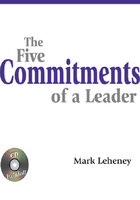
What Is a Commitment to the Self?
To start on this journey, we can ask: What is the “self”? It can be defined as the sum total of perceptions, experiences, conscious and unconscious activity, culture, worldview, judgments, styles, preferences, values, and all components that make up you as a unique human being. The self is a complicated, unique package.
A commitment to self means understanding that you never really, completely figure out everything about yourself. Your self-awareness evolves and deepens over time with this commitment. This is progressive inner wisdom. You can perhaps recall a time in your life when you thought you “had it all figured out,” and there wasn’t much more, or even anything else to learn. You might chuckle now at that notion.
“By carefully analyzing every fascination (we shall) extract from it a portion of our own personality … [W]e meet ourselves time and again in a thousand disguises on the path of life.”
—CARL JUNG
For example, when I was younger and studying logic I was convinced that marshalling a logical, air-tight argument would convince others that I was right. To my consciousness at that time, right equaled right, and how complicated was that to understand?
Later in life, after repeated frustration, it occurred to me that I had completely overlooked the human side of the equation. This meant things such as involving people in the thinking stage, asking their opinions, and recognizing their ideas. The human element in influencing was unconscious to me at the time. Further, my limited vision, or blindness, on this point meant that I was perplexed by resistance and push-back, especially when it didn’t seem logical! Only after more than a few instances where I didn’t get what I wanted did I start to question my own approach. When I finally realized the massive oversight on my part, big new doors opened. The self-awareness helped.
Another example many people can relate to is the dawning recognition that the work one has chosen doesn’t actually bring happiness. Many people tell themselves they need to work in the field they studied for, which brings some measure of status and security, and which seems acceptable to others, particularly influential figures such as family members. Sustained introspection around career choices often surfaces emotions that have long been suppressed, particularly when the introspection occurs during the fertile mid-life period. This, too, is an example of self-awareness.
SELF-ASSESSMENT
How Has Your Self-Understanding Changed Over Time?
Part I. As adults grow and develop, their concept of self changes. At times, there may be periods of relative stagnation, followed by bursts of development. Identification with some things (people, ideas, beliefs) may shift or yield to emerging, new ones.
Using the timeline below, write down some key terms or phrases that describe your concept of self at particular stages. For example, at one age you may have held a self-concept of being steadfast, determined, or even stubborn. This may have yielded later in life to concepts such as willingness to change and open-mindedness.

Part II. What triggered the changes? What did you learn from these changes?
Part III. How has your understanding of self to this point impacted your leadership? Can you link the self-concept you now have with leadership effectiveness? What lessons have you learned from earlier periods in your life, when you may have led out of different styles or ways of being?
